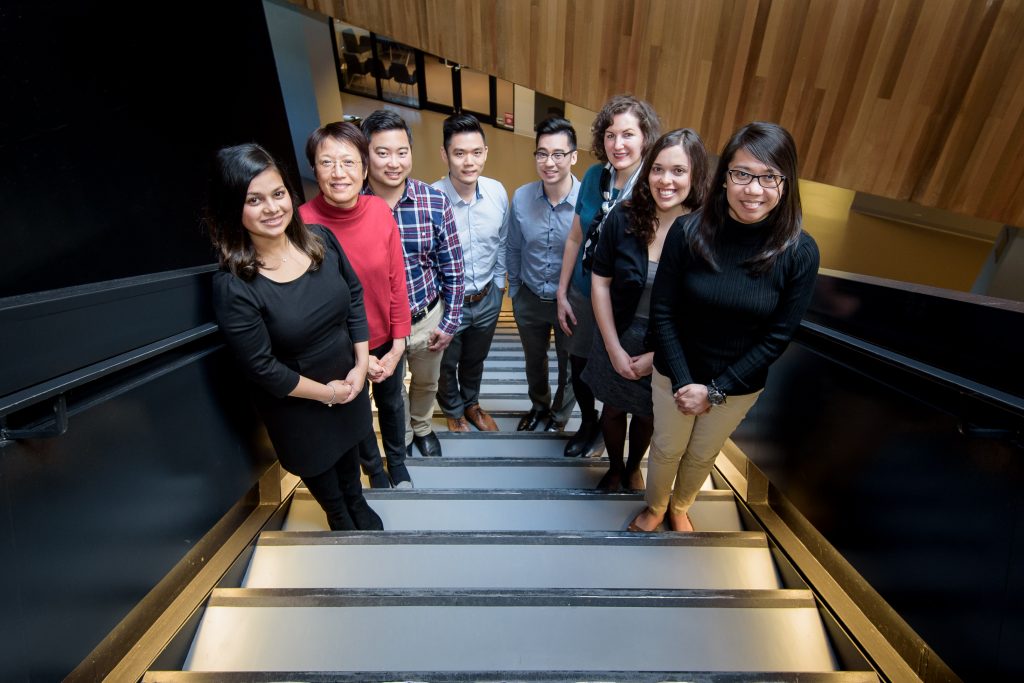- 2019
|
- Winner
|
- Living with Illness or Disability
This award was formally named “Living with Illness”. Our Excellence in Quality category names changed in 2020 to reflect the updates to our BC Health Quality Matrix. Visit our Categories and Criteria page to find out more.
The rise of chronic diseases and illnesses can be challenging for family physicians and the health care system. Pharmacists, with their unique knowledge of medications, are increasingly becoming part of the solution. This is certainly true at the UBC Pharmacists Clinic where staff work with a living lab mindset to figure out and demonstrate how pharmacists can best contribute to meet the needs of patients.
The Pharmacists Clinic, made up of a team of nine staff, is a testament to the power of collaboration between all levels of the health care system, including patients and families. It operates like a medical clinic, where patients receive one-on-one appointments with pharmacists who then work with the patients and other health care professionals to develop personalized medication plans. Patients receive care at the Clinic, by telephone, by telehealth or with the pharmacist co-located in a medical practice.

One of the Clinic’s most successful collaborations has been with the UBC Headache Clinic. Here pharmacists work with physicians and specialists in the care of patients to reduce chronic headaches and migraines, resulting in an average reduction of 12.5 headaches per patient per month.
A neurologist spoke highly of the pharmacists’ work: “One of the wonderful things I’ve seen is that, by the time they have an appointment with me, some patients have had their headaches reduced dramatically, just by being counselled by the pharmacist about how to take their medication properly.”
The Clinic is a hub for education and research, with students and academics involved to learn more about pharmacist practice and study patient outcomes. The Clinic team has also co-developed an outreach program with the First Nations Health Authority (FNHA) and Indigenous communities that offers culturally-safe medication management for patients, honouring Indigenous knowledge systems and practices. Based on its success, FNHA increased funding to expand this program.
At the Clinic, patients are active participants in their own health care and make decisions about how they live with their illness. One patient noted that, through consistent weekly follow-ups with their Clinic pharmacist, they were able to move off opiates entirely. Having cared for over 10,000 patients, many similar stories exist.
The Clinic’s co-located pharmacist model is the basis for plans and funding by the provincial government to integrate pharmacists in team-based primary care practices. This work is in the development stage and the Clinic team will lead the implementation on behalf of the Faculty of Pharmaceutical Sciences in collaboration with the Ministry of Health.
The Pharmacists Clinic’s innovative model sees patients as partners with the shared goal of the patients feeling well. It will soon involve patients even further by launching a Patient Advisory Committee to inform improvements to its operations, further demonstrating that managing chronic illnesses is not a one-size-fits-all approach and cannot be done in isolation.

